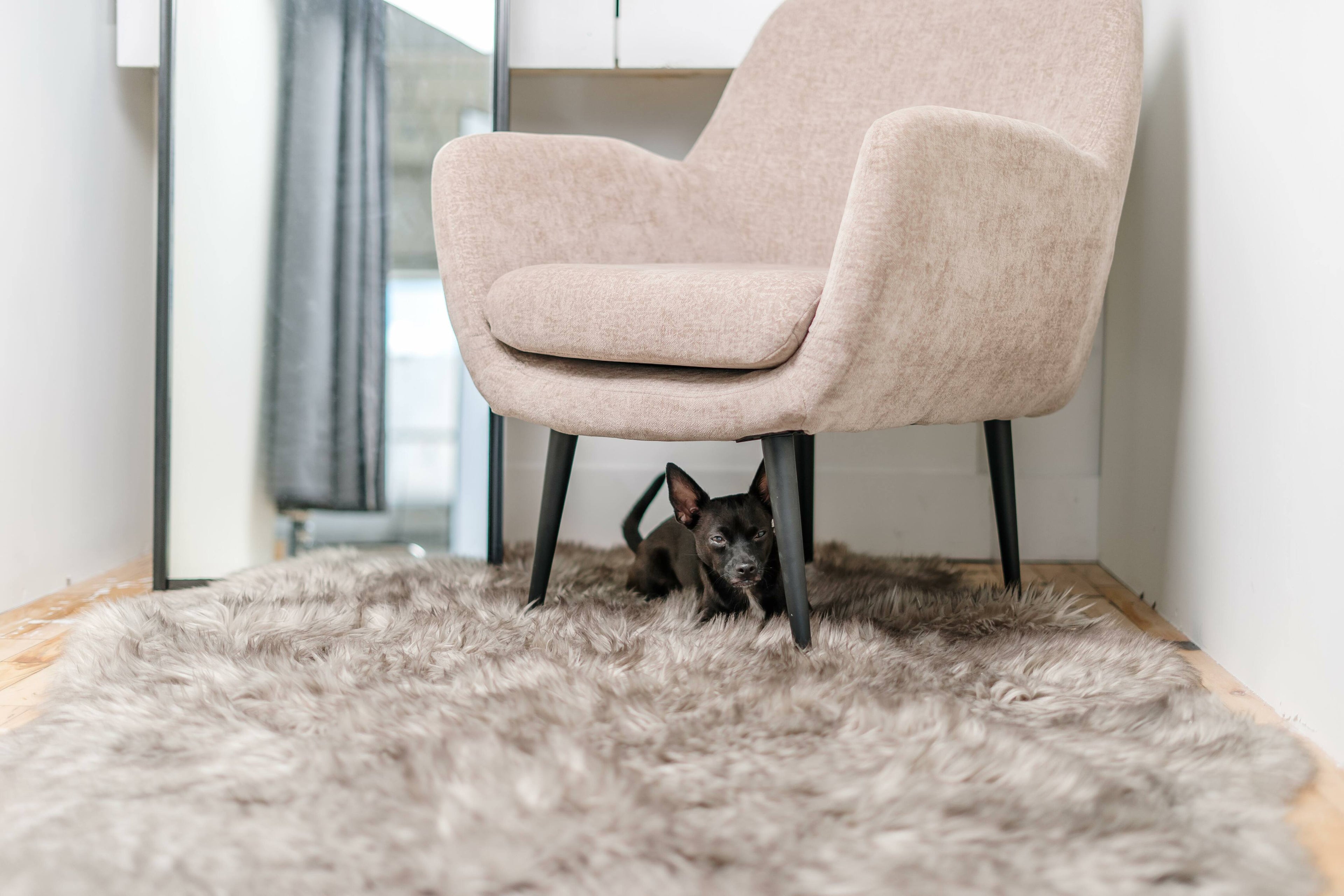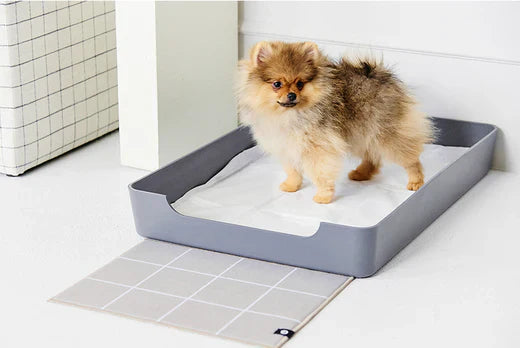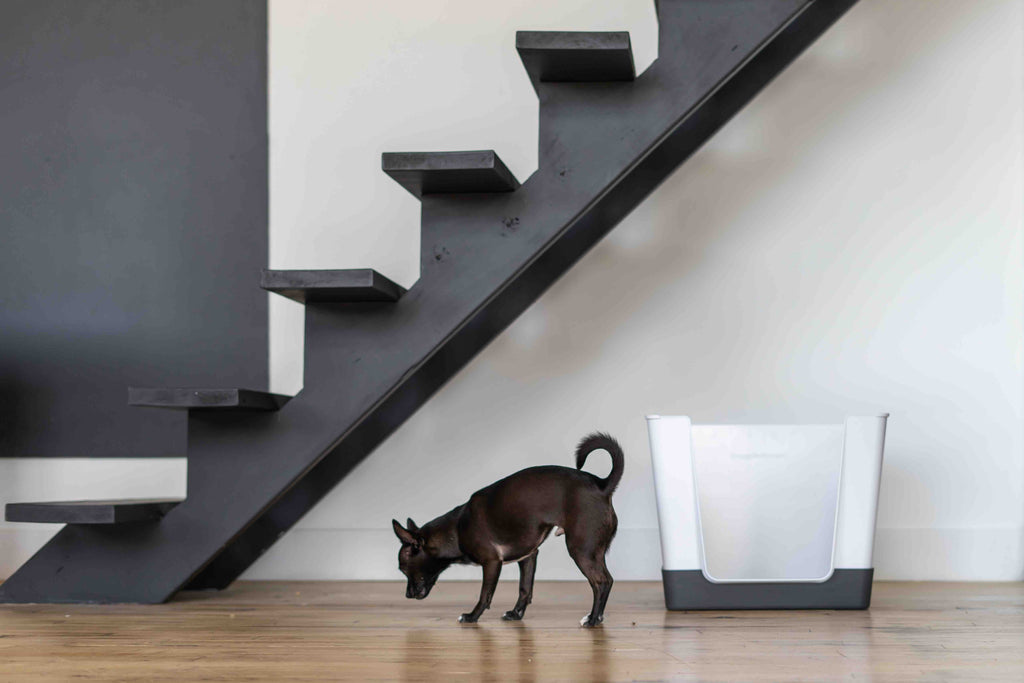Coprophagia in Dogs: Doggy Bathroom in Prevention

Coprophagia, the consumption of faeces, is a perplexing behaviour observed in dogs that can be both concerning and challenging for pet owners. This comprehensive guide aims to shed light on the various aspects of coprophagia, including its potential causes, preventive measures, and the role of innovative solutions like the Doggy Bathroom in managing and minimizing this behaviour.
Coprophagia in Dogs: Causes and Factors
Coprophagia is not uncommon in the animal kingdom and may have evolutionary roots. Puppies often exhibit coprophagic behaviour as they explore the world around them. Poor diet lacking essential nutrients may drive dogs to seek nutrients in their faeces. Identifying signs of loneliness or boredom and addressing them proactively can help in reducing coprophagic tendencies. In some cases, dogs may resort to coprophagia if they have an accident and try to hide the evidence to avoid getting scolded. Below are some points to shed light on this heartbreaking situation;
Medical Conditions: Underlying health issues like malabsorption or pancreatic disorders may contribute to coprophagia. Regular veterinary check-ups are essential to rule out potential health concerns.
Preventive Measures for Coprophagia
Dietary Adjustments: Providing high-quality, well-balanced diets is crucial to meet nutritional needs. Consultation with a veterinarian can help address dietary concerns and contribute to preventing coprophagia. In some cases where your dog may not fully digest their food - their excrements may still have traces of actual food which might entice them to consume their waste. It's important to make sure your dog’s digestive system is working properly.
Behavioural Training: Positive reinforcement is a valuable tool to discourage coprophagic behaviour. Incorporating commands like "leave it" helps redirect the dog's attention and foster appropriate behaviour. Once your dog does their business, it’s your job to ensure you pick it up before they have time to turn around and explore it. Create a distraction right away as soon as they do their business to lure them away, and get them really excited about something else with you. This will make your dog forget all about the poop and focus just on you. Treats help - just saying.
Regular Exercise: Ensuring dogs receive adequate physical activity helps reduce boredom and stress, minimizing the likelihood of coprophagia. Structured playtime and walks engage the dog's mind and body, contributing to overall well-being.
Behavioural Modification: The use of deterrents like bitter sprays can make faeces unappealing, serving as a tool for behavioural modification. However, consistent reinforcement of appropriate behaviour is crucial in preventing coprophagia and tends to do better. The most difficult part for parents is that you have to be alert and next to your dog all the time before they have a chance to sneak away and do the deed. If you only catch them after the fact - then it’s too late to correct them. You must correct them in the act or right before.
Incorporating Doggy Bathroom into Coprophagia Prevention
Introducing the use of a Doggy Bathroom as a designated elimination area can contribute to curb coprophagic behaviour. To get started, parents should stand in front of the Doggy Bathroom as dogs are doing their business inside and establish eye contact. This signals your dog that they are safe from predators and you have their back during this vulnerable moment. As soon as they are done, kneel down and praise them immediately (with treats, no less) in order to create a distraction to prevent them from going back for a snack. Eventually after a few weeks, your dog will start to forget all about what they just let behind and focus on the reward and of how happy they just made you.
Unfortunately, many dogs who suffer from coprophagia end up in shelters or even worse, euthanized out of desperation. Coprophagia is a heartbreaking habit that drives a huge wedge between dogs and their humans, creating a disconnect between them. It can take up to a year or more to resolve completely, and in some cases - it’s never really 100% fixed. One thing to remember is that all your dog wants to do is to make you happy. It is up to parents to find a way to communicate with their dog and make it known that eating their own waste is bad. You have to catch them in the act to correct them over and over again until they get it. If you try correcting them after the fact - it won't matter and they won't get it. This requires 24/7 babysitting and you cannot let your guard down until trust is re-establish in the relationship. The good news is that it can be helped, and you can find a well-balanced life with your pet again.
Correcting bad behaviour in dogs involves identifying the cause, in this case - them trying to eat their own waste (coprophagia), immediately redirecting their attention by creating a distraction to stop them, and then using positive reinforcement once you’ve successfully done so. Maintain consistency and be very clear in your communication. Use a firm "Yes" or "No" with a deep voice, but never violent or menacing. Hitting your dog, or rubbing their nose in it is a big no-no and will only make the situation worse. Clear commands will build a strong bond between the owner and the dog, fostering a positive and cooperative relationship.
You'll want to invest a few good toothbrushes and dog toothpaste so you can thoroughly brush your dog's teeth and mouth. This is yet another punishing task but it must be done. Aside from that - good daily dental hygiene is good overall practice anyway, so hopefully at least your dog will become more tolerant of at least one good habit.
Coprophagia in dogs is a bad behaviour that demands compassion, understanding, patience, and proactive management. By addressing potential causes, implementing preventive measures, and incorporating innovative solutions like the Doggy Bathroom, pet owners can navigate this challenging aspect of canine behaviour. Striving to provide the best care for our furry companions, a holistic approach combining proper nutrition, behavioural training, and innovative solutions can contribute to a healthier and happier life for both pets and their owners.



